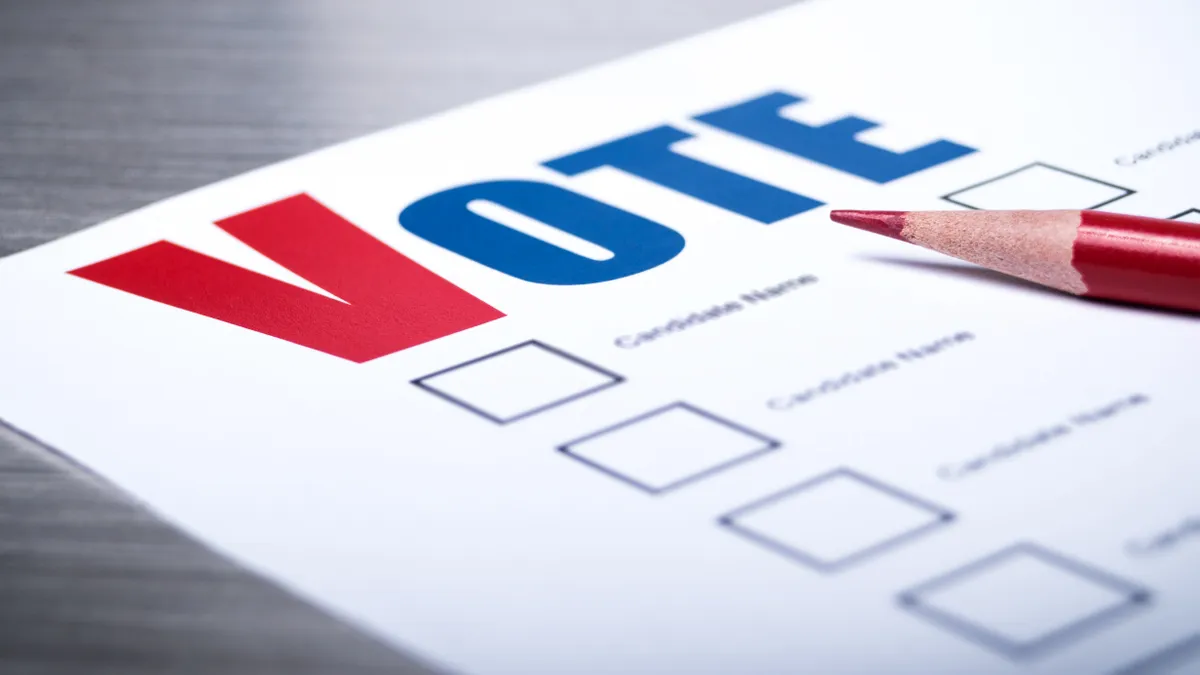Dive Brief:
- In an election season that will be contentious down to the wire, Florida utilities are pouring millions more into their push for Amendment 1, a ballot initiative widely seen as anti-solar by solar advocates.
- The Miami Herald reports that last week Florida Power & Light, Duke Energy and a pair of "dark-money groups" contributed $3.5 million to Consumers for Smart Solar, the political action committee leading their efforts.
- The cash infusion follows news that support for Amendment 1 is slipping, and is now too close to call.
Dive Insight:
A few weeks ago, Amendment 1 had looked likely to pass despite the vocal objections from solar advocates who say the measure is a wolf in sheep's clothing. In late September, a Florida Chamber of Commerce poll showed almost two-thirds of voters support it, and the ballot initiative requires 60% to pass.
But Sunshine State News reports support has fallen to just 60%, the minimum needed. And 28% oppose the measure, with 13% undecided.
Those falling poll numbers were likely behind the last-minute cash infusion from utilities, according to the news outlets. According to the Herald, FPL sent at least $2 million to the Smart Solar PAC, Duke gave $1 million and $500,000 came from groups not required to reveal their donors.
The fight over solar energy has been particularly contentious in Florida. Despite its title, "Rights of Electricity Consumers Regarding Solar Energy Choice," opponents say the measure mostly enshrines utilities' control of the solar market, especially since it seeks to ban third-party ownership of rooftop solar. Another ballot measure, put forth by solar advocates Floridians for Solar Choice, did not make it onto the ballot this year but would have legalized third-party ownership of distributed solar.
A leaked recording did little to help the utilities' cause. The Miami Herald dug up an audio recording featuring a policy director from the James Madison Institute describing Amendment 1 as an "incredibly savvy maneuver" that could "completely negate anything [pro-solar interests] would try to do legislatively or constitutionally down the road." Consumers for Solar Choice denied hiring JMI to help them on the issue.
Opponents of the utility-backed measure are not the only ones calling it deceptive. The Florida Supreme Court approved the ballot language in the spring but Judge Barbara Pariente disagreed and said in her dissent that the amendment’s language misleads solar buyers. She argued that the measure doesn't give them an actual "choice" to choose energy alternatives and aims to kill the other amendment aiming to legalize third-party financing.















